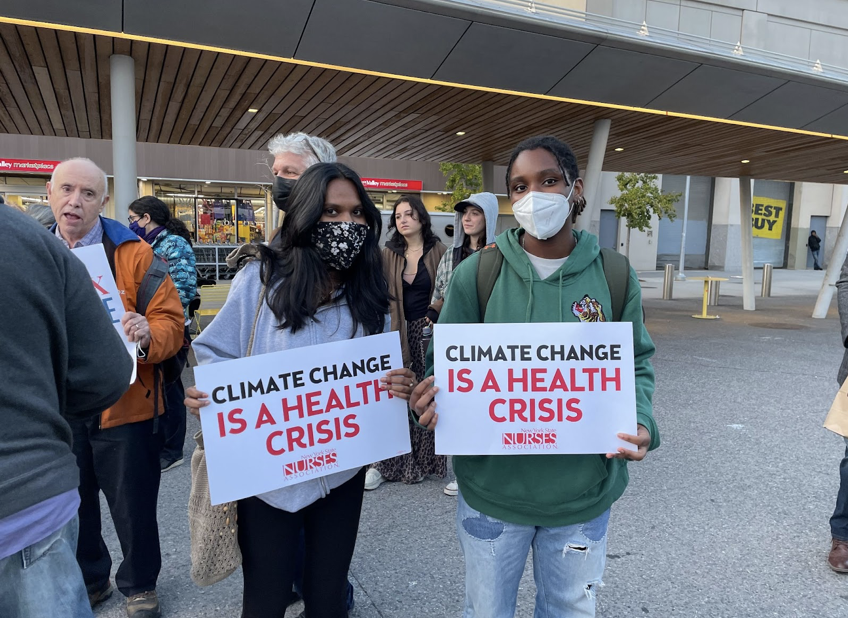On Thursday, October 28th, a group of students from the Environmental Club congregated to attend the rally in favor of the Climate Community Investment Act (CCIA) bill at Fordham Plaza. This crucial piece of legislation aims to implement a polluter penalty in order to raise at least $15 billion per year from corporate polluters who have endangered the lives of many Bronx residents. This money will then be put towards the transition to a renewable and equitable economy for New York, creating good, green jobs, especially for those who have experienced disproportionate rates of environmental injustice. The CCIA outlines a comprehensive plan including setting legally binding emissions standards, direct investment into renewable energy solutions, strong labor laws to regulate green jobs, and penalizing the noxious by-products of burning fossil fuels that poison black and brown communities. The bill is spearheaded by NY Renews, a “coalition of over 200 environmental, justice, faith, labor, and community groups, and the force behind the nation’s most progressive climate law.”
A version of NY Renew’s first bill, the Climate and Community Protection Act (CCPA), was passed as the Climate Leadership and Community Protection Act (CLCPA) in 2019, and is now the nation’s most aggressive climate law. The next step is to pass the CCIA. While the CLCPA focuses on large-scale emission reductions in New York and creates a Climate Action Council to enforce this law, the CCIA hopes to build upon its progress and invest more funds into low-income communities of color.
WPIX11 News defines environmental racism as “the intentional racial discrimination in infrastructural and environmental policy making.” In the Bronx, this manifests itself in the establishment of roadways, toxic waste facilities and other industrial and commercial sites near residential communities. The pollution emitted from these sources has resulted in a myriad of health issues for Bronx residents, including asthma and respiratory illness. According to the NYC Department of Education, child asthma emergency room visits in Hunts Point are nearly twice the citywide average. Furthermore, pre-existing conditions, such as asthma, have made the Bronx community more susceptible to high rates of getting COVID-19 and high rates of COVID fatalities.
In an effort to show their support and participate in the first in-person initiative since quarantine, a handful of students and Environmental Club advisor Mr. Waldman attended the recent CCIA rally alongside activists, climate groups and policy makers. The event was put together by former city council candidate Jessica Haller, who spoke to the club last year during an organized virtual policy panel for students. Among those who spoke at the rally were State Senator Luis Sepulveda, Assemblywoman Nathalia Fernandez and soon to be Bronx Borough President Councilwoman Vanesa Gibson. The Fieldston group listened as Gibson empowered the crowd through her hopeful vision: “We have so much potential right here in the Bronx that we need to tap into. Our young people deserve a better future than all of us. We need to make sure that we lead by example, and the CCIA seeks to do that.” They later heard from Dior St. Hillaire, the founder of a compost co-op named GreenFeen, as she spoke: “I beg you to consider, that maybe, the same people that have been harmed by these practices of injustice might just be the same people that have the solution.” It was an inspiring afternoon of action, and the Environmental Club hopes to continue contributing to on-the-ground climate efforts.






